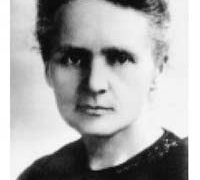Pregnant mothers need to consume plenty of eggs and meat as they are rich in choline, a crucial nutrient for the development of children’s brains. Babies who do not receive breast milk will experience poorer cognitive development if they do not receive choline from other foods.
 |
| Pregnant mothers need to consume plenty of eggs and meat (Photo: fotosearch) |
Professor Nguyen Cong Khanh, Deputy Head of the Pediatrics Department at Hanoi Medical University and former Director of the Central Children’s Hospital, stated that choline is an essential nutrient that contributes to the formation of nerve cells and plays a role in neurotransmission, thus it is related to cognition and intelligence.
This nutrient also has antioxidant properties, delaying the natural death of cells while aiding in the development of vision. Although it is very necessary, the amount of choline that the body produces is far too little compared to actual needs, which is why it needs to be supplemented through food.
Choline has been known for a long time, but its importance for children’s brain development was only discovered four years ago. At a recent pediatric nutrition seminar held in Hanoi, Dr. Sheila Margaret Innis from the University of Toronto (Canada), a leading scientist in nutrition and brain development, stated that some components in the diet that were not previously considered essential nutrients actually play a crucial role in supporting comprehensive human development, with choline and polyunsaturated fatty acids such as DHA and ARA being the most notable.
Dr. Innis indicated that humans need to regularly supplement choline, but the most critical time is during the first 1-2 years of life. This is when the brain develops at its fastest rate. By the age of 2, the brain weight has tripled compared to birth and is nearly equivalent to that of an adult brain.
Research in various countries shows that children lacking choline develop cognitive abilities more slowly than their peers. This condition can persist for 8-10 years. Therefore, in addition to providing children with enough energy and vitamins, Dr. Khanh suggests that parents should pay attention to cognitive nutrients, including choline. The choline requirement for children is 125 mg/day when under 6 months and 150 mg/day thereafter.
Choline is found to be most abundant in breast milk with a concentration of 160 mg/liter. Additionally, it is present in several other food sources with concentrations exceeding 100 mg per 100 grams of food, such as: Eggs: 215 mg; skinless roasted chicken: 79 mg; beef: 78 mg; wheat: 32 mg; orange juice: 11 mg; banana: 10 mg. Furthermore, unrefined rice and cabbage also contain significant amounts of choline.
To ensure adequate choline intake for children, Dr. Nguyen Cong Khanh advises pregnant and breastfeeding mothers to consume the aforementioned choline-rich foods or formula that contains this nutrient. For infants, exclusive breastfeeding is recommended for the first 6 months and continued breastfeeding until the age of 2.
If the child cannot be breastfed or does not receive enough breast milk, it is important to supplement with choline-rich foods, preferably through fortified milk. Dr. Nguyen Cong Khanh mentions that for infant formula, the standard choline content recommended by the American Medical Institute is 24 mg/100 kcal, which is equivalent to 107 mg in 100 grams of powdered milk. “In addition to checking calcium and vitamin content, mothers should also pay attention to the choline content on the milk packaging,” Dr. Khanh advises.
According to Dr. Khanh, there are currently some infant formulas available in the Vietnamese market that are fortified with choline, but most do not meet the recommended standard levels.


















































